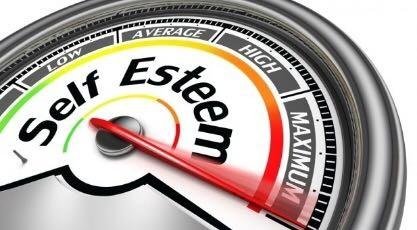
It’s a word that most Canadians are intimately familiar with: self-esteem. In a nutshell, the term “self-esteem” refers to how much someone values her/himself as a person. It’s a construct that most people are aware of, passed down by the humanistic psychologists of the 1960’s, finding acceptance in today’s world of popular culture.
Dramatic pause
self-esteem, will bratt counselling, self-love, low self-esteem
And then comes in self-esteem’s not-so-easy to sit with kin, “low self-esteem”. It’s a safe bet that anyone familiar with “self-esteem” has also heard of “low self-esteem” – the notion that someone does not value her/himself highly at all. In my experience as a therapist, concerns with low self-esteem are among the top reasons many people seek counselling.
This is where things get interesting for me. People often base the conclusion that they have low self-esteem on certain behavioural factors – in other words, ways they respond to particular situations. Those situations commonly have to do with negative responses from others, such as criticism, judgment, condemnation, rejection, or social shaming. People will often conclude that they have low self-esteem because they’re extremely wary of being evaluated or misunderstood in ways that paint them as deficient.
self-esteem, will bratt counselling, positive psychology, low self-esteem
This is where the shortcomings of this concept become clear to me: If a person is extremely sensitive to criticism, judgment, rejection, etc, that sounds to me like they actually esteem themselves quite well. If someone responds defensively to a perceived affront to their dignity or identity, then wouldn’t they have to see themselves as being worth defending? And doesn’t that say a thing or two about how they value themselves? From the countless conversations I’ve had with folks on topics related to self-esteem, I’m inclined to answer “yes” to the above questions.
Of course, as I try to make clear at every opportunity, context is everything. I’m generally not a fan of so-called “universal truths” that lead us to paint people with overly broad brush strokes – which is how psychological theories are often taken up. So although I see flaws with the notion of “low self-esteem”, I’m also wary of imposing my own perspective onto those who think they might be struggling in that way without first getting a rich description of the context. There’s often extensive histories behind people’s responses to criticism, judgment, and rejection. These histories are likely far more explanatory than taken-for-granted notions like low self-esteem.
Here are some questions for folks who may be trying to sort out their own relationship to the notion of self-esteem:
When you imagine yourself on the receiving end of judgment or criticism, what’s your internal/emotional response like? What responses do you notice in your body?
What purpose do you think these responses serve?
(For example, some people will say that their anxiety serves the interest of creating safety, or their anger/frustration serves the interest of fairness or justice)
If they serve some interest related to your dignity, safety, or self-preservation, what does the fact that you care about these things say about how you esteem or value yourself?
Tags self-esteem, low self-esteem, counselling, response-based practice, therapeutic questions
Hi! I am a robot. I just upvoted you! I found similar content that readers might be interested in:
https://www.willbrattcounselling.com/blog-creating-difference/2014/10/11/rethinking-self-esteem
Downvoting a post can decrease pending rewards and make it less visible. Common reasons:
Submit
Thanks
Downvoting a post can decrease pending rewards and make it less visible. Common reasons:
Submit